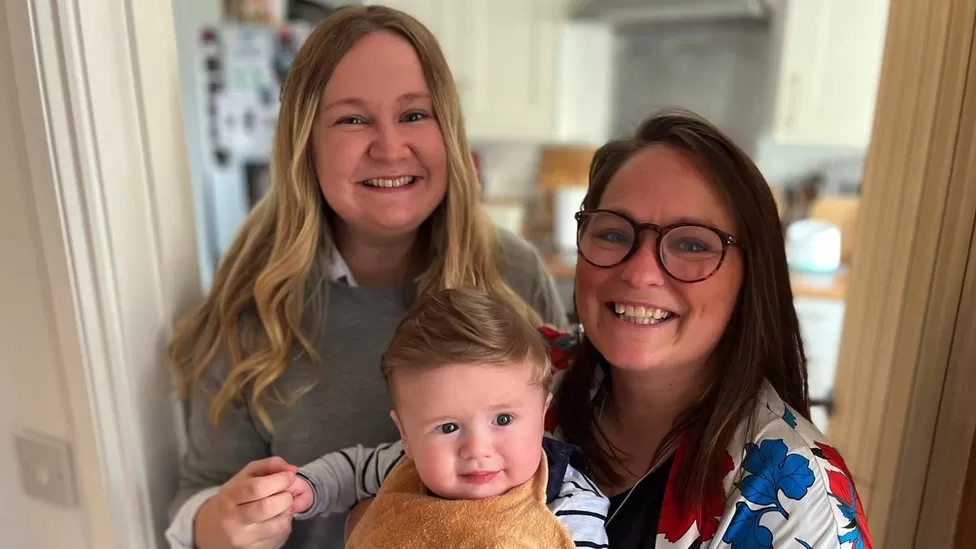In England, the National Health Service (NHS) offers vital support to couples struggling with fertility issues, specifically through in-vitro fertilization (IVF). However, a stark inequality persists for LGBTQ couples, who are often subjected to financial burdens before accessing the same treatments available to heterosexual couples.
While heterosexual couples qualify for NHS-funded IVF after two years of unsuccessful attempts at conception, LGBTQ couples are required to demonstrate their infertility by privately funding three to twelve rounds of artificial insemination, resulting in expenditures exceeding £20,000 for many. This disparity persists despite the government’s commitment to providing fairer access to fertility treatments for LGBTQ couples and single women.
Recent analysis conducted by The Pink Times found that out of 42 Integrated Care Boards (ICBs) in England, only four offer fertility treatments to same-sex couples without prior private funding for artificial insemination. An additional ten ICBs are currently reviewing their policies. Even for those who qualify for IVF, the number of allowed attempts varies by location, creating a patchwork of access to fertility care.
Advocates have decried this situation as a “gay tax,” emphasizing the urgent need for the government to fulfill its promise of removing financial barriers. The Department for Health and Social Care’s 10-year plan to enhance the healthcare system’s responsiveness to women and girls has left LGBTQ couples facing real-life challenges in their journey to parenthood.
Shauna Mansbridge and Faye Hawkins, a same-sex couple from Dorset, were informed by their GP that NHS-funded IVF was contingent on funding 12 unsuccessful rounds of artificial insemination. The daunting cost of £30,000 for twelve rounds led them to invest their life savings in private IVF treatment instead, a decision that has taken a significant emotional and financial toll.
Scotland stands as the sole UK region providing donor insemination to same-sex couples without prior private treatment requirements. In contrast, England, Northern Ireland, and Wales all impose conditions similar to England’s, with varying access by locality. Surrogacy, another path for same-sex couples to build their families, remains unavailable through the NHS.
Kate Davies and her wife, Keri, shared their experience of paying over £17,000 for artificial insemination and IVF, emphasizing that existing policies have priced many lesbians out of parenthood. They stressed that while they expected to contribute to their treatment costs, the current rules impose an undue burden, akin to a “gay tax.”
Laura-Rose Thorogood, founder of LGBT Mummies, highlighted the complex and potentially hazardous routes some LGBTQ individuals resort to due to inaccessible fertility support. Some turn to known donors, friends, or online acquaintances for sperm, posing health risks and potential legal complications. Thorogood asserted that the human right to have a family has been denied to members of the LGBTQ community.
The Department of Health acknowledges the need for improvement and expects variations in NHS-funded fertility services to start changing soon. As the government’s Women’s Health Strategy aims to boost healthcare access and equity over the next decade, LGBTQ couples remain hopeful that their path to parenthood will become fairer and more accessible.

